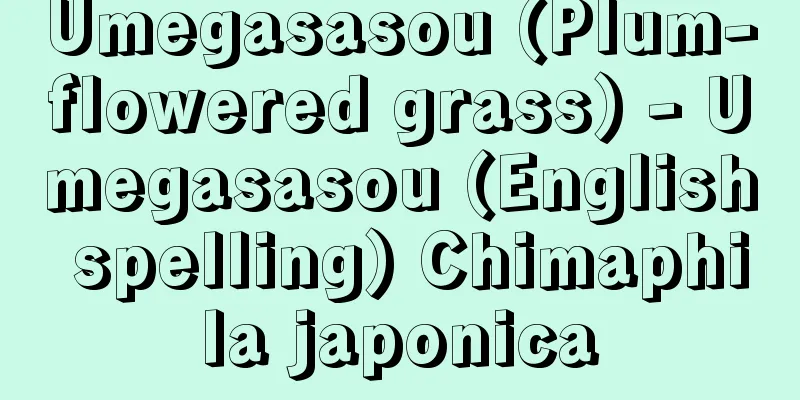Elixir

|
…This is one of the words that testifies to the fact that gold, being a rare substance that emits an inert golden glow forever and ever, has a mysterious power that can be called magic and has beguiled humans. The 6,000-year history of gold and humanity is filled with stories of men and women deceiving each other and killing each other for gold, a symbol of power and wealth, and is also imprinted with stories of the fierce obsession with ``eternal life'' that humans sought by knowing gold, as typified and embodied in the golden coffin of King Tutankhamun of ancient Egypt and the elixir of immortality (called elixir in the West) sought by ancient Chinese alchemists. Perhaps from the early stages of history, one of the decisive things that humans learned in this world after being born was that all things are in flux, that is, there is nothing in this world that remains forever. … From the Big Four…This is how the ideas of the Philosopher's Stone and the Elixir appeared. As can be seen from the word elixir (Latin derived from the Arabic al-iksīr, which is thought to be an Arabic version of the Greek xērion, a powder used for wounds), Greek thought, including alchemy, which was considered heretical in the Christian world, was first passed on to the Arab world, and then was accepted by the Latin world in the late Middle Ages. From Jabir bin Hayyan…He stayed in his father's hometown of Kufa for a long time, but was invited by the Abbasid caliph Harun al-Rashid to go to Baghdad, where he became a physician to the court and gained the favor of the Barmak family. During that time, he immediately cured the illness of Yahya's favorite concubine with an elixir (called elixir in the Latin world and usually compared to the philosopher's stone), which is said to have earned him great trust. With the fall of the Barmak family, he lost favor with the court, but continued to be active until the time of Ma'mun. … From [Alchemy]…On the other hand, Rhazes (Latin name Razes), who knew the excellent medicinal effects of mercury and sulfur, was also a chemist, and in his “Book of Secrets” he tried to make strong acids, aluminium, salts, and even “essences” through chemical operations such as calcination, sublimation, combustion, and melting, using distillers and furnaces that he had improved from ancient ones. In particular, the search for “essences,” that is, the mystical substance that penetrates everything and perfects the imperfect, led to the search for the creation of “elixirs” (from Arabic al‐iksīr, pronounced elixir in English), that is, unique medicines that would cure the inferiority of metals and also cure human diseases. Furthermore, from the 10th to the 13th centuries, many outstanding philosophers with an interest in medicinal chemistry, such as Ibn Sīna (Latin name Avicenna) and al‐'Irāqi, emerged. … *Some of the terminology explanations that mention "elixir" are listed below. Source | Heibonsha World Encyclopedia 2nd Edition | Information |
|
…これは,まさに金が,不活性の黄金の輝きを永遠不滅に放つ希少の物質であるがゆえに,魔力ともいうべき不思議な力をもって人間を惑わしてきた事実を証言する言葉の一つである。金と人類6000年の歴史は,男も女も権力や富の象徴として金のためにだまし合い,金のために殺戮(さつりく)を繰り返してきた物語に彩られているとともに,そこには古代エジプトのツタンカーメン王の黄金の柩や古代中国の錬金術師たちが求めた不死の霊薬(錬金薬,西方ではエリクシルelixirと呼ばれた)に典型的に象徴され,かつまた実体化されたような,金を知ることによって人間が求めた〈永遠の生〉への凄絶な執念の物語にも刻印されている。おそらく歴史の初期段階から,人間が生を受けてこの世で知ったことの決定的なことの一つは,万物は流転するということ,すなわち,この現世にあっては永久に変わらないものはなに一つ存在しないということであったであろう。… 【四大】より…〈賢者の石〉,〈霊薬(エリクシル)〉の考えはこうして登場した。その際,エリクシルelixir(アラビア語al‐iksīrに由来するラテン語で,英語ではエリキサー。al‐iksīrは外傷用粉末剤を表すギリシア語xērionがアラビア語化したものと考えられる)という言葉にもみられるように,キリスト教世界で異端視された錬金術をはじめとするギリシア思想は,まずアラビア世界に受け継がれ,次いでそれが中世後半のラテン世界に受け入れられたものである。… 【ジャービル・ブン・ハイヤーン】より…長く父の故郷クーファにとどまっていたが,アッバース朝のカリフ,ハールーン・アッラシードに招かれてバグダードに赴き,その宮廷付きの医師となり,バルマク家の知遇も得た。その間,この家のヤフヤーの寵姫の病気を秘薬〈イクシールal‐iksīr〉(ラテン世界ではエリクシルelixirと呼ばれ,通常〈賢者の石〉に比せられる)で直ちに治し,大いに信用を博したといわれる。バルマク家の没落とともに宮廷の寵を失ったが,マームーンの時まで活躍した。… 【錬金術】より…一方,水銀や硫黄のすぐれた医薬効果を知っていたラージー(ラテン名ラゼス)は,化学者でもあり,その《秘密の書》の中で古来のものを改良した蒸留器や炉などを用い,煆焼,昇華,燃焼,溶融などの化学的操作をとおし,強酸,礬類または塩,さらに〈精〉などを作ろうとした。なかでも〈精〉,つまりすべてをつらぬき不完全なものを完全化する霊妙な物質の探究は,〈エリクシルelixir(錬金薬)〉(アラビア語al‐iksīrに由来し,英語読みではエリキサー)作り,すなわち金属の粗悪さを治すとともに,人間の病気をも治す特異な薬剤の探究に向かった。 さらに10~13世紀にかけて,イブン・シーナー(ラテン名アビセンナ),イラーキーal‐‘Irāqīなど,医化学に興味をもつすぐれた哲学者たちがたくさん輩出した。… ※「elixir」について言及している用語解説の一部を掲載しています。 出典|株式会社平凡社世界大百科事典 第2版について | 情報 |
Recommend
Private law - Shiho
Also called civil law. The opposite of public law...
Manis tricuspis (English spelling)
…[Yoshiharu Imaizumi]. … *Some of the terminology...
Cristobalite
SiO 2 . Also called cristobalite. A type of silic...
Taishan Fukun Festival
This is one of the festivals held by onmyoji (exor...
Kabutozuka - Kabutozuka
〘Noun〙① An ancient grave with a mound of earth in ...
ROP - ROP
Retinopathy of prematurity Source: About Shogakuka...
Mediastinum testis (English spelling) mediastinumtestis
…Each is a flattened ellipsoid about the size of ...
Focus; hypocenter
The location where an earthquake occurs. In other ...
Salted fish - Shiobiki
〘Noun〙① The act of salting fish. Also, the fish. S...
Hosho-ryu
(1) A school of Noh. One of the five schools of s...
Jayasthiti Malla
...Brahmans who had escaped from the hands of Mus...
Ikasubaruseta, CG - Ikasubaruseta
… Research into Mesoamerican culture began with r...
Flower bed
〘noun〙 The part at the top of the flower stalk tha...
Cattleya labiata (English name) Cattleya labiata
...This plant was Bletia verecunda R.Br., and it ...
Schwenckfeld, Kaspar von
Born: 1489. Osig [Died] December 10, 1561. Ulm Ger...









